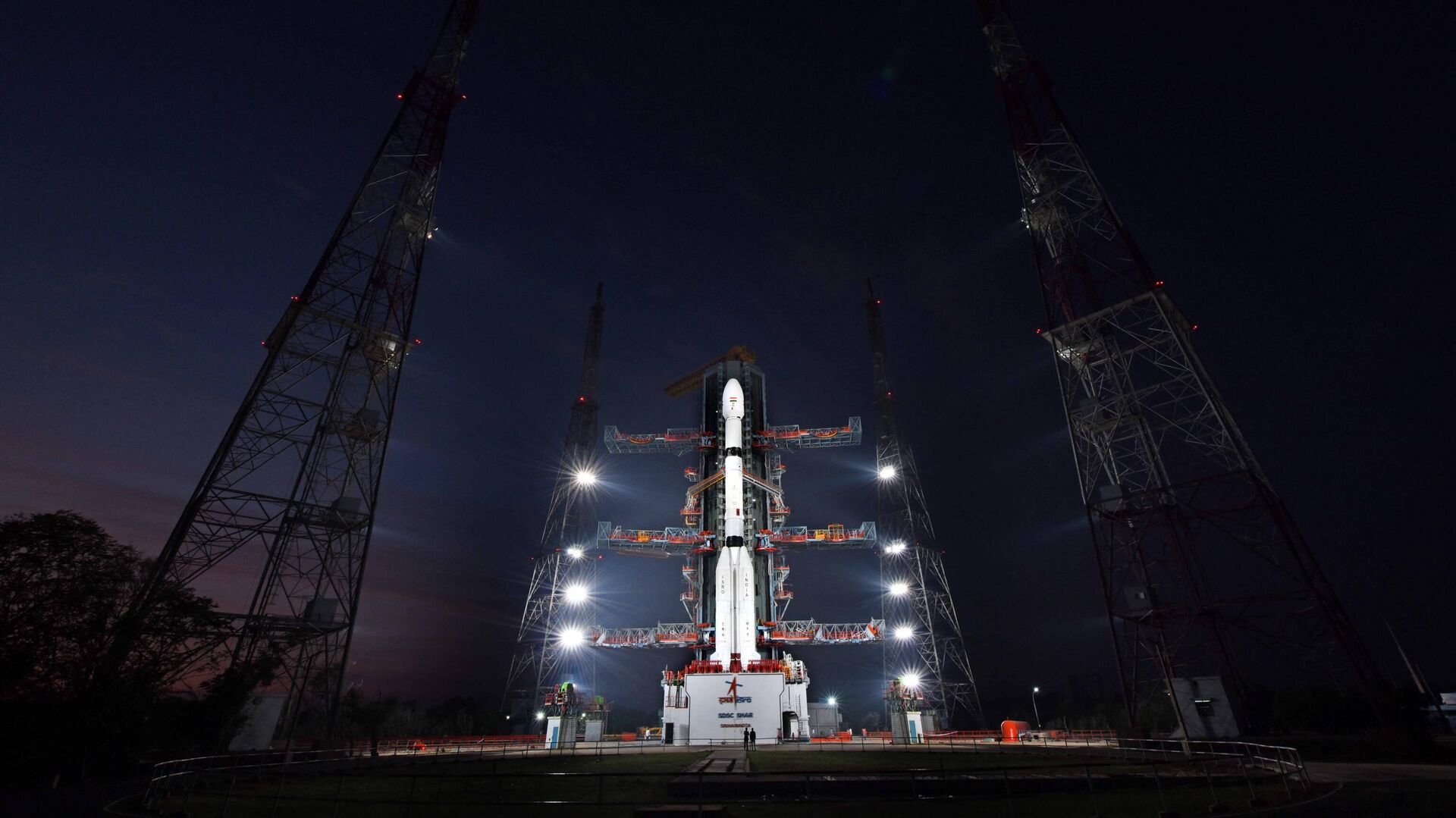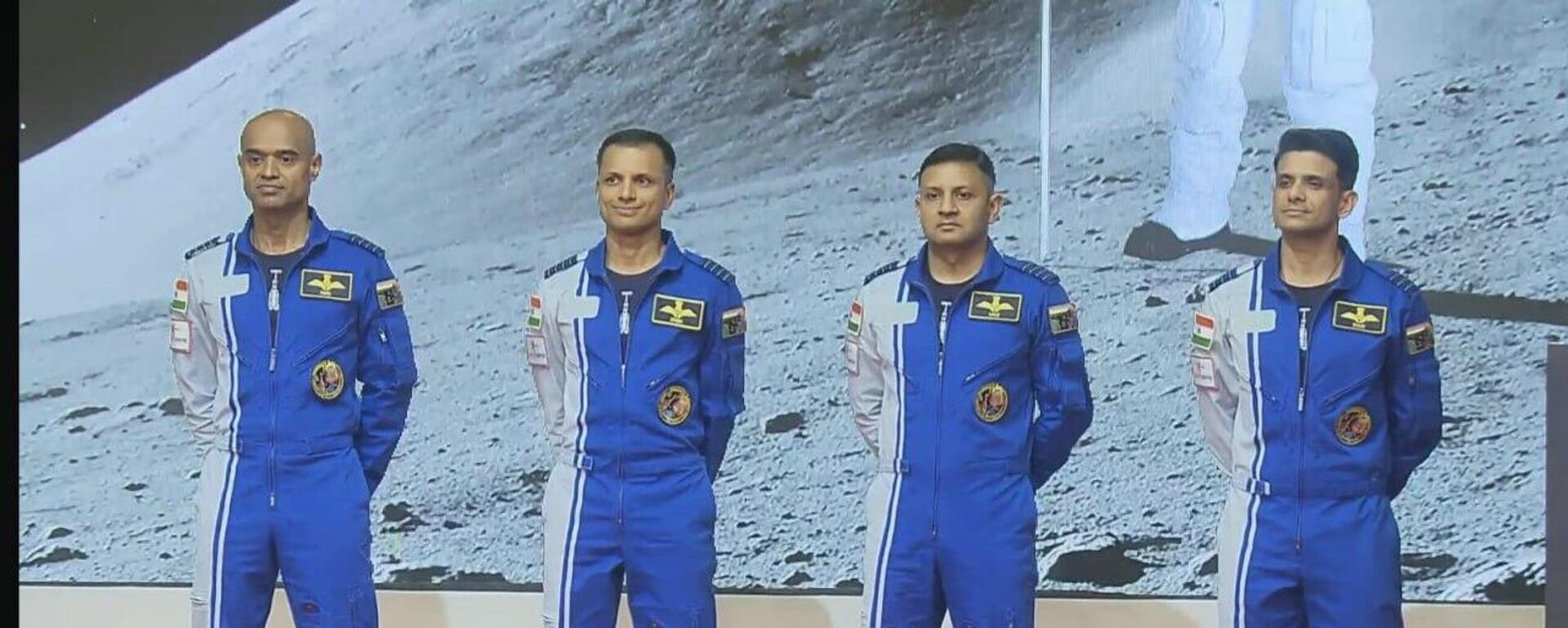https://sputniknews.in/20240228/construction-of-indias-second-spaceport-to-be-completed-in-two-years-isro-6687300.html
Construction of India's Second Spaceport to Be Completed in Two Years: ISRO
Construction of India's Second Spaceport to Be Completed in Two Years: ISRO
Sputnik India
Construction of India's second spaceport in Tamil Nadu is expected to take approximately two years, said Sridhara Panicker Somnath, chairman of the Indian Space Research Organization (ISRO).
2024-02-28T16:20+0530
2024-02-28T16:20+0530
2024-02-28T16:20+0530
science & tech
science & tech
narendra modi
india
tamil nadu
andhra pradesh
indian space research organisation (isro)
https://cdn1.img.sputniknews.in/img/07e8/02/10/6575311_0:321:3071:2048_1920x0_80_0_0_883b74c4c46088d30a62d47d5c9d72cd.jpg
Construction of India's second spaceport in Tamil Nadu is expected to take approximately two years, said Sridhara Panicker Somnath, chairman of the Indian Space Research Organization (ISRO).On Wednesday, at the official ceremony, Somnath told reporters, "The Tamil Nadu government has transferred the land to our management. Construction will start soon. It will take about two years to complete the construction work. We are already planning to launch the first small launch vehicle in two years". This new spaceport will significantly improve the launch process for small rockets to meet the needs of India's emerging private space industry. Small satellites, weighing around 500-700 kg, are typically launched into lower earth orbit (LEO). Sriharikota, an existing spaceport located on a barrier island in Andhra Pradesh, has been in operation since 1971. Since then, India has successfully launched 95 rockets.Sriharikota's strategic location near the equator makes it ideal for equatorial and heavy launches, greatly improving the efficiency of rocket launches. However, rockets launched on a southerly or polar trajectory pose a safety risk due to the presence of Sri Lanka, which acts as a barrier to prevent rocket debris from landing on foreign soil. The 2,300-acre launch site, Kulasekarapattinam, is located about 700 km south of Sriharikota and very close to the southern tip of the Indian peninsula. Only four nations - Russia, China, the United States and Japan - operate two or more spaceports; India will be the fifth nation to join the elite space club. The Kulasekharapatnam project is estimated to cost less than INR 10 billion, according to ISRO. This new spaceport is poised to significantly empower emerging private space companies by improving the overall efficiency of their rockets to maximize their returns.
https://sputniknews.in/20240227/modi-names-four-russian-trained-astronauts-for-gaganyaan-mission-6679498.html
india
tamil nadu
andhra pradesh
Sputnik India
feedback.hindi@sputniknews.com
+74956456601
MIA „Rossiya Segodnya“
2024
Deexa Khanduri
https://cdn1.img.sputniknews.in/img/07e6/0c/13/138923_52:0:533:481_100x100_80_0_0_cadf23d341691fc65ff2b22fd1afe584.jpg
Deexa Khanduri
https://cdn1.img.sputniknews.in/img/07e6/0c/13/138923_52:0:533:481_100x100_80_0_0_cadf23d341691fc65ff2b22fd1afe584.jpg
News
en_IN
Sputnik India
feedback.hindi@sputniknews.com
+74956456601
MIA „Rossiya Segodnya“
Sputnik India
feedback.hindi@sputniknews.com
+74956456601
MIA „Rossiya Segodnya“
Deexa Khanduri
https://cdn1.img.sputniknews.in/img/07e6/0c/13/138923_52:0:533:481_100x100_80_0_0_cadf23d341691fc65ff2b22fd1afe584.jpg
india's second spaceport, kulasekarapattinam town, tamil nadu, small satellite launch vehicles, sslv, sridhara panicker somnath, indian space research organization, isro, isro - tass management, private space players,
india's second spaceport, kulasekarapattinam town, tamil nadu, small satellite launch vehicles, sslv, sridhara panicker somnath, indian space research organization, isro, isro - tass management, private space players,
Construction of India's Second Spaceport to Be Completed in Two Years: ISRO
Deexa Khanduri
Sputnik correspondent
Prime Minister Narendra Modi laid the foundation for India's second spaceport in Kulasekarapattinam town, Tamil Nadu, on Wednesday. The new spaceport will exclusively cater to the launch of Small Satellite Launch Vehicles (SSLV).
Construction of India's second spaceport in Tamil Nadu is expected to take approximately two years, said Sridhara Panicker Somnath, chairman of the Indian Space Research Organization (ISRO).
On Wednesday, at the official ceremony, Somnath told reporters, "The Tamil Nadu government has transferred the land to our management. Construction will start soon. It will take about two years to complete the construction work. We are already planning to launch the first small launch vehicle in two years".
This new spaceport will significantly improve the launch process for small rockets to meet the needs of India's emerging private space industry. Small satellites, weighing around 500-700 kg, are typically launched into lower earth orbit (LEO).
Sriharikota, an existing spaceport located on a barrier island in Andhra Pradesh, has been in operation since 1971. Since then, India has successfully launched 95 rockets.
Sriharikota's strategic location near the equator makes it ideal for equatorial and heavy launches, greatly
improving the efficiency of rocket launches.
However, rockets launched on a southerly or polar trajectory pose a safety risk due to the presence of Sri Lanka, which acts as a barrier to prevent rocket debris from landing on foreign soil.
The 2,300-acre launch site, Kulasekarapattinam, is located about 700 km south of Sriharikota and very close to the southern tip of the Indian peninsula.
Only four nations - Russia, China, the United States and Japan - operate two or more spaceports; India will be the fifth nation to join the elite space club.
The Kulasekharapatnam project is estimated to cost less than INR 10 billion, according to ISRO. This new spaceport is poised to
significantly empower emerging private space companies by improving the overall efficiency of their rockets to maximize their returns.



